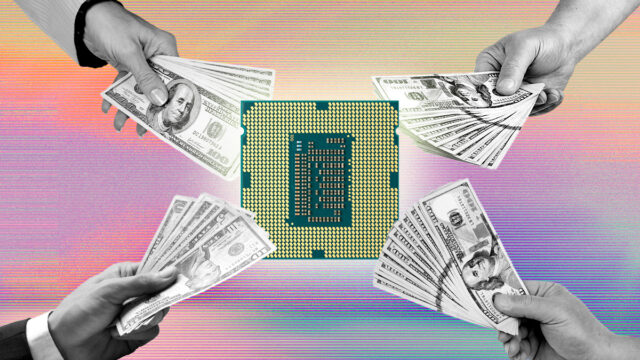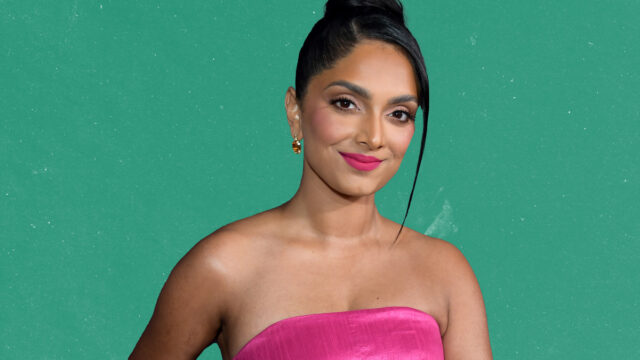For Influencer Marketing, AI May Not Be Just a New Tool, but a Sea Change
Learn to partner with creators and build customer trust with authenticity. Join leaders from TikTok, the NBA and more at Social Media Week, May 16–18. Register now.
When cases started to pop up of AI-generated images winning art and photography contests, social media exploded with the usual debates.
After all, AI already has a tenuous relationship with creatives who are afraid of being replaced. Others don’t like the idea of the technology being used to deceive. And then there are those excited for disruption, sparking conversations about how high-quality AI-generated content might be used to marketers’ advantage.
One thing is certain: the rapid advancement of AI will lead to a massive abundance of online content. When it becomes incredibly easy to create lots of high-quality video, art and text, content creators and brands will take advantage.
What’s less certain is how this influx will impact the way we value or consume social media content. Will the bad actors using these tools chip away at people’s trust? Will the democratization of quality content make it harder to stand out on social media? Will a natural lack of quality control cause interest in social media to stagnate as a result?
In addressing these concerns, influencers may have a big part to play. Since TikTok’s discovery-based algorithms became the envy of (and model for) most major platforms, creators with big followings began competing with micro-influencers (influencers with a follower count within the range of 10K–100K followers). In fact, the relationship between follower counts and view counts on any specific piece of content seems less relevant now than it has in the past.
And it’s not just TikTok. We see this on YouTube, on Instagram with Reels and on Twitter feeds that now prioritize popular content over accounts followed.
But driven by the rise of AI-generated content, these major creators may find new roles and responsibilities as consumers look to them to become thought leaders and editors, perhaps even more so than the social media platforms themselves.
A new calling
Of course, not all influencers are suited to this AI content-filled social media landscape, like those who try to game the system, manipulate the algorithms to surface their content and jump on whatever the hack-of-the-day is to get reach. But for those who are focused on their craft and who play the long game of putting out quality content day after day, their stronger relationships with their audiences will be invaluable.
That’s because the influencers who are building long-term, trusting relationships with audiences are the ones who will benefit when the truth is in question. When information is commoditized and perspectives flood the internet generated en-masse by AI, who do you trust?
You trust the people who you already have relationships with, are authentic and care about putting out quality content. Even as platforms prioritize discovery, this will almost certainly put a renewed spotlight on creators invested in building communities, not just chasing views.
Refocusing on creators and influencers with bigger followings will also have the downstream effect of causing many influencers to become brands. This is obviously already happening; influencers like Logan Paul launching Prime and Mr. Beast selling Beast Burgers. But as people put even more of their trust in these types of creators, whether for guidance on food, fashion, music, beauty, politics, health or fitness, this is only going to increase and eventually challenge more traditional brands.
Getting prepared
As AI-generated content exerts its influence on social media and audiences turn to influencers, both brands and agencies should be thinking about creators as more than one-off or even long-term partners on the marketing side. Rather, they should look at how they can partner with creators and influencers on creating products and constructing relationships with creators where there is shared equity so that creators truly feel ownership and inclusion in the product’s success.
For example, the home organizers from The Home Edit leveraged their social presence, landing them a Netflix show, which then led them to partner on a few product lines with Walmart and The Container Store. This not only drove sales for each brand but increased the breadth of The Home Edit’s audience. Years (and Emmy nominations) later, their followers still feel super connected to the two founders and their staff because of their honest and open approach on social media.
Influencer Emma Chamberlain and clothing brand PacSun have struck similar partnerships over the years, collaborating closely to create a specific line that reflected her style, with Chamberlain acting as the creative director. Emma promoted the partnership heavily via PacSun’s TikTok, through her own channels and by starring in PacSun’s VR game/experience. This drove PacSun’s success on social, helping them grow faster than Old Navy, Abercrombie and American Eagle.
For agencies, building these sorts of partnerships means fundamentally shifting their thinking. Partnering with influencers who are launching brands, but also developing more innovative marketing approaches to appeal to influencers who innately understand marketing in 2023.
On the brand side, agencies can also help navigate more meaningful partnerships between influencers and bigger companies, playing a larger role in negotiating and strengthening the synergy between both entities. Lastly, influencers and marketers must rededicate themselves to champion honesty and authenticity in a social media marketing world where trust is the primary metric and the health of online discourse is at stake.
The alternative is for both parties to act as competitors and lose out on a huge opportunity for collaboration. After all, AI-generated content is here to stay and is likely to become even more integral to our social media ecosystem. So, brands and influencers should step up now and embrace the new roles, responsibilities and opportunities that are sure to reshape influencer marketing’s future.
https://www.adweek.com/social-marketing/influencer-marketing-ai/

